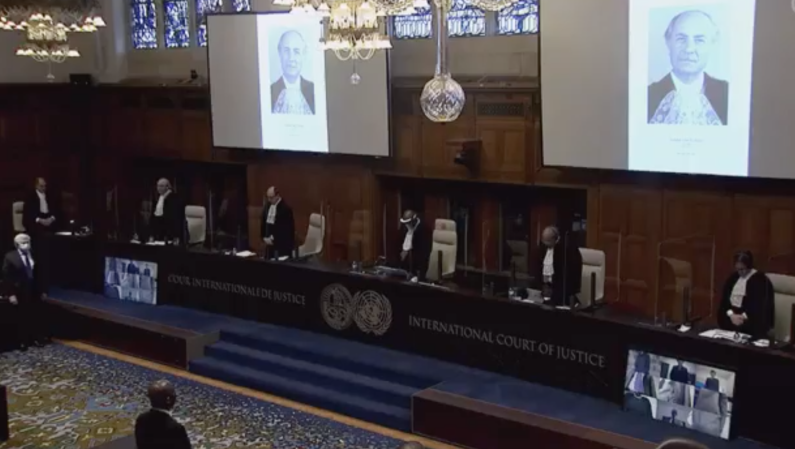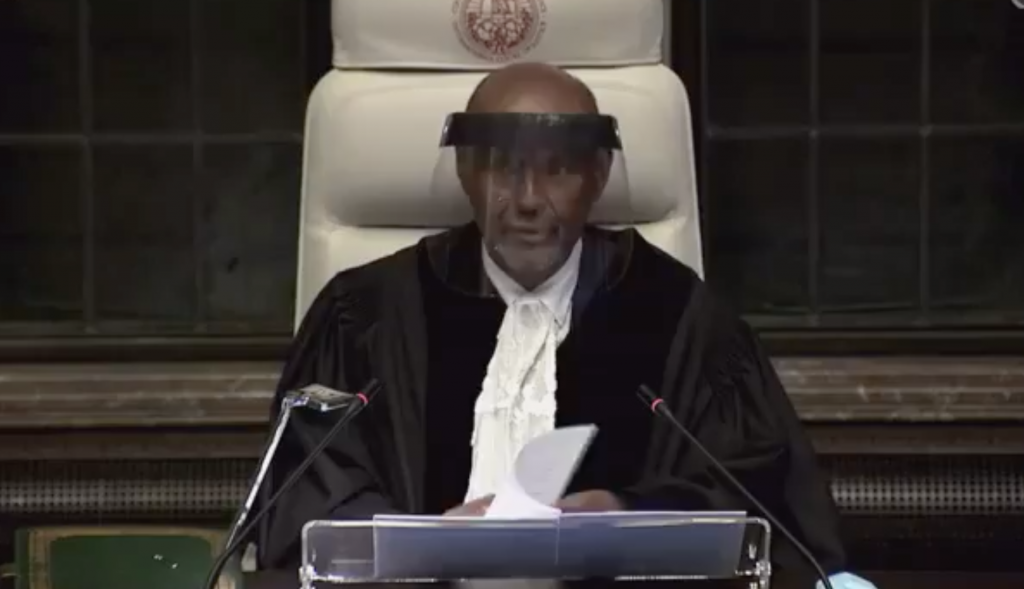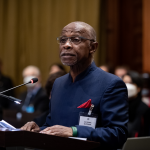
The International Court of Justice this morning ruled that it has jurisdiction to entertain Guyana’s case against Venezuela on the validity of the 1899 Arbitral Award which outlined the land boundary between the two countries.
By a majority of 12 to 4, the Court established its jurisdiction in the matter that was taken before it in March 2018 by Guyana.
In handing down the judgment, President of the Court, Justice Abdulqawi Ahmed Yusuf stated that the Court’s jurisdiction is limited to the claims of either party that existed on the date that the Geneva agreement was signed in 1966.
“The Court concludes that it has jurisdiction to entertain Guyana’s claims concerning the validity of the 1899 award about the frontier between British Guiana and Venezuela and the related question of the definitive question about the land boundary dispute between the territories of the parties”, the President of the Court said.
With the Court establishing its jurisdiction in the matter, it will remain open to Venezuela presenting arguments before the Court in the case. Venezuela has maintained that the Court lacks jurisdiction and while it did not make oral arguments in the hearing on jurisdiction, it did file documents to support its position.
The President of the Court said it is regrettable that Venezuela has chosen not to participate in the proceedings held so far. He noted, however, that the case will move on.

“Under Article 53 of its Statute, whenever one of the parties does not appear before the Court or fails to defend its case, the other party may call upon the Court to decide in favour of its claim” and that the Court must, before doing so, satisfy itself, not only that it has jurisdiction in accordance with Articles 36 and 37, but also that the claim is well-founded in fact and law”
He said the non-appearance of a party obviously has a negative impact on the sound administration of justice.
In the handing down of the judgement today, the President of the ICJ also retraced the steps taken that eventually resulted in the case making its way before the International Court.
Guyana moved to the Court after the Secretary General of the United Nations advised that the Court make a final judgement on the matter after repeated attempts at the UN Good Offices process failed.
The former and present Guyana governments have been united in their position of the case before the ICJ as they see it as a non-partisan matter and one that is grounded in maintaining the country’s territorial integrity.











You must be logged in to post a comment Login